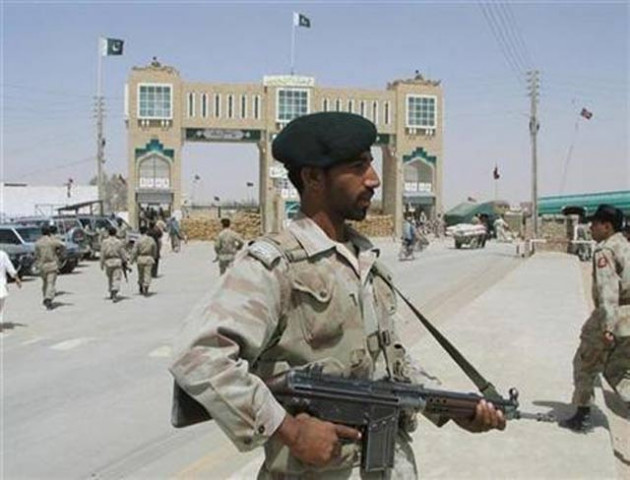ISLAMABAD:
Pakistan has decided to keep its border crossings with Afghanistan closed for an indefinite period, signaling a hardened stance until the Afghan Taliban regime takes “verifiable and irreversible” action against terrorist groups, particularly the banned Tehreek-e-Taliban Pakistan (TTP).
Officials told The Express PK Press Club that the government had conveyed to Kabul that the crossings would not reopen for trade and commercial activities unless concrete steps were taken to eliminate anti-Pakistan elements operating from Afghan soil.
The border closure, now lasting more than a month, has left thousands of trucks and containers stranded on both sides, crippling bilateral trade and the regional transit route.
Currently, the crossings remain open for one-way humanitarian movements only, primarily to facilitate the return of Afghan refugees and stranded people.
“Human lives take priority over commercial and economic considerations,” a senior official said, explaining why Islamabad is unwilling to compromise on terrorism concerns.
The move aligns with Pakistan’s sharper message to Kabul. At Friday’s weekly press conference, Foreign Ministry spokesperson Tahir Hussain Andrabi drew a clear red line, ruling out any “meaningful commercial or economic engagement” with Afghanistan unless the Taliban regime acts decisively against groups targeting Pakistan.
“Pakistan is a strong supporter of regional trade and connectivity,” Andrabi said. “We have made a number of trade concessions to Afghanistan, but these positive gestures have not been responded to by the Afghan Taliban regime, which continues to actively harbor and support elements committing terrorism against Pakistan from Afghan soil.”
He cited the recent terrorist attacks in Islamabad and Wana, calling them a stark reminder of the threat emanating from across the border.
“Both incidents had deep Afghan imprints,” he stressed. “In the Islamabad attack, an Afghan national was the suicide bomber. So let that reality sink in in Kabul.”
Officials say the latest closure is not a routine border management measure but a strategic policy change. Taliban leaders have been privately informed that dialogue cannot continue without demonstrable action against the TTP and the group that Pakistan now officially calls Fitna Al-Khawarij (FaK).
The spokesperson rejected the Afghan Taliban’s claim that they were “powerless” against the TTP, calling it untenable.
“They claim control over all Afghan territory, but attacks on Pakistan continue to be orchestrated from Afghan soil,” Andrabi said. “The Afghan nationals involved in these attacks bear responsibility alongside the groups they shelter.”
The standoff has also been worsened by recent remarks by Taliban authorities warning Afghan traders against relying on Pakistan and urging them to shift their businesses to other countries.
For now, Pakistan appears unwilling to budge. “Security first, trade second,” is how one official summed up Islamabad’s position.




